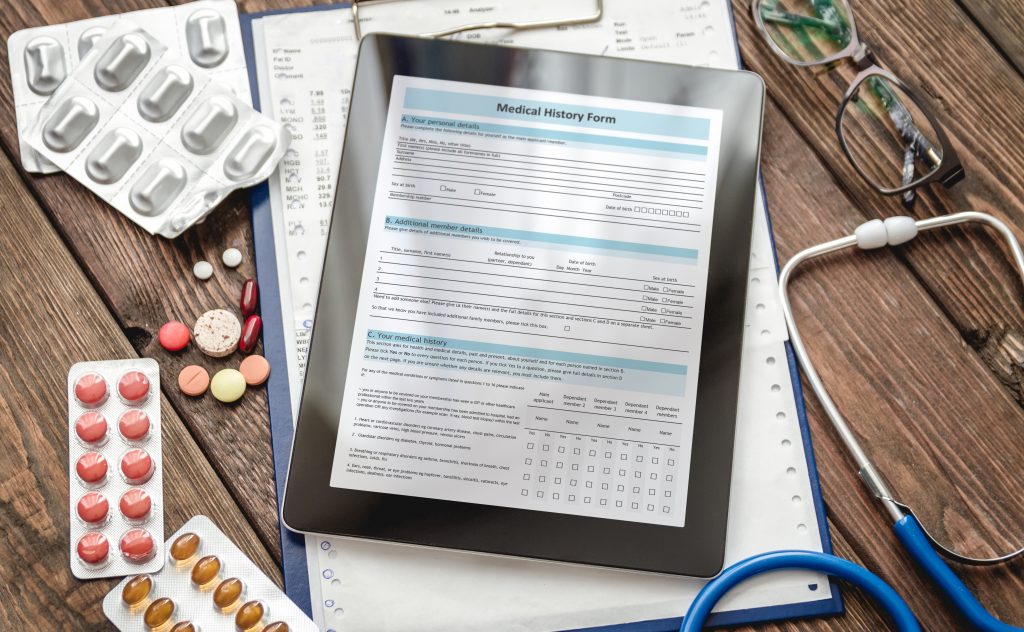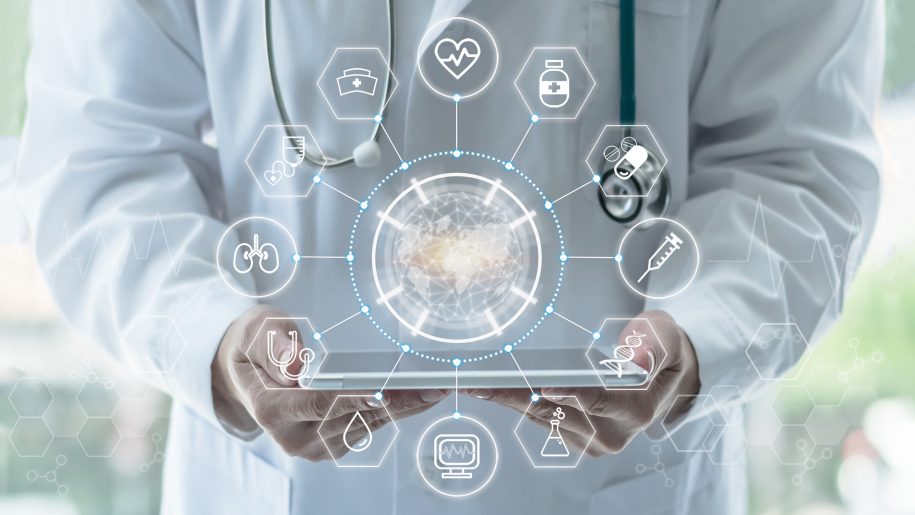Healthcare trumps just about every other industry on earth in terms of its importance, and it affects almost everyone in various ways throughout their lives. A byproduct of any industry of this scale and complexity is the staggering, often overwhelming quantity of paperwork and documentation it generates. This documentation is not just expensive, but it can be hard to store, harmful to the environment, and overall more impractical than digital information.
The downside of all this is that it can make healthcare organizations operate less efficiently at all levels. If everyone from Doctors and nurses to administrators, receptionists, and more are being forced to deal with the paperwork and manual data entry, productivity inevitably suffers.
Optical character recognition (OCR) software is changing the way organizations approach paperwork by automating many of the manual processes and streamlining administration. In this article, we take a look at some of the potential ways that this can apply to healthcare.
What is OCR for healthcare?
OCR is a term for software that electronically scans documents and produces a completely digital copy. As the name suggests, it generally refers to text-based information, but similar technology can also be used to process images in a comparable way. OCR for healthcare is simply the same technology applied to a healthcare context.
The software enabling companies to benefit from OCR has been available for several years now, but basic OCR can be notoriously limited in its usefulness. This is because simple and early forms of technology can struggle to recognize complex and varied types of documents. This can lead to unacceptably high error rates and actually lead to a drop in efficiency, as opposed to the intended benefits.
Now, OCR integrated with AI technology has helped to overcome these limitations. AI-enabled OCR can recognize a greater range of document types and achieve significantly higher accuracy rates than more simple software, making it the clear choice for any organization where accuracy and efficiency are important.
Potential use cases for OCR in healthcare
Extracting information from faxes
Unlike most other industries that moved away from fax machines many years ago, healthcare organizations still regularly rely on them, and this is unlikely to change anytime in the near future. Fortunately, OCR is the perfect way to simplify the storage, copying, and sharing of faxes, enabling healthcare workers to handle them far more efficiently and accurately retain their information.
Scanning and storing medical files
Medical documents and patient files are arguably the most important forms of documents there are, with lives literally depending on their accuracy. The enhanced functionality of AI-based OCR makes it an excellent way for healthcare organizations to have total confidence in the fidelity of their medical files and safeguard patients.
Beyond this, manual handling and copying are very time-consuming processes, taking up countless valuable working hours. AI OCR for healthcare can cut down or even eliminate manual entry, saving organizations money and freeing up resources to be better spent in other ways.
Protecting sensitive data
Healthcare, by its very nature, is always going to deal with sensitive information, and it is paramount that this information is protected, both for the wellbeing of patients and for the reputation of your organization.
AI-enabled OCR can help to protect sensitive data by facilitating the digitization of data, which helps organizations to move away from unsecured, easily lost physical documents. Digital documents can also be selectively edited to redact sensitive information, without the need to manually copy or edit them.

Simplifying invoice management
Invoicing is a vital part of running a healthcare organization, as it is in any business, and it’s also an area where accuracy is of critical importance. OCR software, powered by AI, can dramatically simplify the way you manage invoicing by automating large parts of the process.
Using the specialized software, organizations can almost instantly scan and digitize entire invoices with exceptional accuracy and file them securely in an organized way. From here, they can be easily stored, edited, and shared, saving employees from wasting time unnecessarily.
Streamlining administration departments
The amount of administration associated with running any functional healthcare organization is often staggering, eating up huge amounts of budgets and putting a lot of strain on administration professionals.
Integrating AI-based OCR into operations can lessen the load on administrative teams, helping them to streamline by automating large parts of the administration process.
Helping medical professionals treat patients
Handling paperwork often makes up a significant part of any medical professional’s day-to-day work. This includes doctors and nurses whose primary aim should always be patient care, not dealing with cumbersome paperwork. The result can be longer hours, inflated budgets, and even, potentially, a drop in patient care quality.
Reliably automating much of the paperwork done by medical professionals with AI-powered OCR can help to mitigate this issue. Less paperwork means more time to focus on the tasks that really matter, which is good for business and, most importantly, good for the patient and staff welfare.
How can Digitise.AI benefit your healthcare organization?
Digitise.AI is an AI-powered document digitization platform with the ability to transform the handling of information across almost any industry, including healthcare.
Using cutting-edge AI and machine learning technology, Digitise.AI is tailored to function optimally in any setting, whether that’s handling invoices, digitizing medical records, or dealing with almost any other healthcare-related documentation.
Cut down workloads for your teams, free up resources to spend on other areas, and do away with inefficient paperwork forever.
Talk to our team today to learn more about Digitise.AI and see what it could do for your organization.
